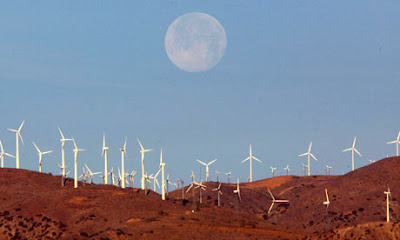New Jersey Sets National Precedent by Passing the Global Warming Response Act
TRENTON - On the final day of votes before their summer break, the New Jersey Legislature overwhelmingly passed the Global Warming Response Act, A3301/S2114, (72-8 in the Assembly, 36-1 in the Senate). This ground-breaking legislation requires a mandatory reduction of the state’s global warming pollution to below 1990 levels by 2020 and 80 percent below current levels by 2050. These are the limits scientists say are necessary to avoid the worst impacts of global warming.
"Global warming is the most urgent environmental issue in our lifetime,” said Senator Buono, D-Middlesex. “This legislation sets up a comprehensive solution to global warming. It will reduce our dependence on foreign oil and increase energy efficiency, resulting in significant cost savings for both families and businesses.”
More...
"Global warming is the most urgent environmental issue in our lifetime,” said Senator Buono, D-Middlesex. “This legislation sets up a comprehensive solution to global warming. It will reduce our dependence on foreign oil and increase energy efficiency, resulting in significant cost savings for both families and businesses.”
More...



Comments
Crisis or Political Profiteering?" at
http://ezinearticles.com/?Energy-Crisis-or-Political-Profiteering?&id=725936
As I see it, cities are huge conglomerates of people engaged in
i) intellectual-type stuff
ii) large-scale trading/manufacturing activities
ii) service-type stuff for the intellectuals and traders, cooking their food, washing their clothes etc.
Villages are smaller places that house primary producers of basic things like food and clothing, largely for the villagers themselves. The people there also tend to do a lot more for their own households and neighbourhoods; they are more connected to members of their own family and community. Villages have relatively self-sufficient households with limited give-and-take with the ‘outside world’. Hence, each village develops a character and history of its own.
These are of course huge generalizations that I am making for the limited purpose of stating my main point, which is:
We need to start living in smaller, slower-paced, more self-sufficient groups that are less dependent on, and that do not contribute much to, this huge money-making resource-guzzling thing we call the economy.
The intention here is not to create hippie-type utopias or communes of spaced-out people, but to create replicable models of groups of thinking people DROPPING OUT OF THE MAIN ECONOMY, gradually taking the wind out of its sails and slowing it down.
Villages I believe are basically places that are friendlier to people, animals and the environment. They are slower paced and have less of a hunger for personal growth, primarily because they are focussed around good living day-to-day, not on growth.
Villages are built around the core principles of caring for each other’s good opinion and way of life and actively participating in upkeep of common facilities such as rivers, beaches, grasslands, neighbourhoods, roads and playgrounds. (By contrast, indifference of ones surrounding is built into a typical urban setup; the bigger the city, the greater the indifference — because everybody is in such a tearing hurry to get somewhere else that they delegate the basic tasks of looking after their own neighbourhoods.)
I’m not saying that ruralization is the one and only answer to the ills that we face today. I’m only saying this is one possible way forward — one among many others that we must consider.
What do you think?